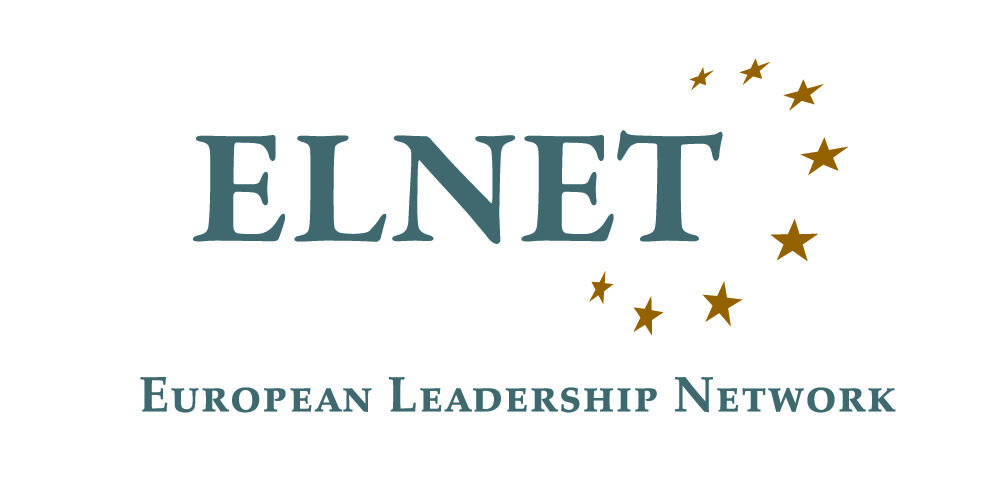The European Leadership Network (ELNET) and ELNET’s Forum of Strategic Dialogue (FSD), together with the prestigious Italian think tank Alcide De Gasperi Foundation, brough together leading political, economic, and academic figures from Italy and Israel to discuss the Hamas-Israel war and its geopolitical and economic implications; the “day after,” thinking about post-war diplomatic solutions for Gaza; and the future of Italy-Israel strategic relations. The discussions were conducted strictly under the Chatham House Rule.
Keynote speakers included Gideon Sa’ar, Chairman of the ‘New Hope’ party, Member of the Foreign Affairs and Defense Committee, Knesset; former Minister of Justice, Deputy PM and Minister of Interior; and Maria Elena Boschi, MP Italia Viva party, Foreign Affairs Committee Italian Parliament. Participants included senior figures from Israel’s National Security Council, parliamentarians, former NATO Parliamentary Assembly representatives, as well as former officials, experts, journalists, academics, and civil society representatives from Italy and Israel.
Executive Summary:
Hamas-Israel war and its geopolitical and economic implications
- The Hamas-Israel war has had profound implications not only for the region but also for the broader international community. The involvement of major global powers such as China, Russia, and Iran has further complicated the situation, leading to a reshaping of alliances and power dynamics.
- The war has exposed the fragile balance of power in the Middle East, drawing in external actors with their own strategic interests. Russia’s alliance with Iran, China’s growing ties with Hamas, and the broader implications for regional stability were discussed in depth.
- The potential for future agreements involving the United States, Saudi Arabia, and Israel is a crucial factor in shaping the future geopolitical landscape.
- The discussion also touched upon the strategic implications for Europe, with Italy playing a key role due to its geographical and political significance within the EU. Strengthening ties with Israel can enhance Italy’s influence and contribute to regional stability.
- The Hamas-Israel war has undoubtedly had a severe impact on Israel’s economy, leading to a sharp contraction in the fourth quarter of 2023, followed by a rapid rebound.
- Israel needs to continue to invest in infrastructure and technology, identifying opportunities for mutually beneficial collaboration with Italy in these areas.
- The geopolitical shifts impact global trade routes and energy security and require the creation of strategic alliances to mitigate potential disruptions to trade and energy.

The day after – Thinking about post-war diplomatic solutions for Gaza
- The tragic events of October 7th were a focal point, with discussions highlighting the challenges of negotiating peace while ensuring security for Israeli citizens. The importance of dismantling Hamas’s infrastructure was emphasized, along with the need for a comprehensive strategy that addresses the root causes of the conflict.
- The participants acknowledged the difficulties in achieving a two-state solution but stressed the necessity of pursuing peace through dialogue and cooperation.
- There is a need for a balanced approach that considers the security concerns of Israel while addressing the legitimate aspirations of the Palestinian people.

The future of Italy-Israel strategic relations
- The dialogue highlighted the potential for Italy to benefit from Israel’s expertise in agri-tech and innovation. This collaboration is seen as a way to foster economic growth and create new opportunities for both countries.
- The potential for collaboration in sectors such as agri-tech, defense technology, and renewable energy can not only boost economic growth but also enhance the strategic autonomy of both nations.
- A proactive governmental approach in creating an enabling a conducive environment for economic collaboration is critical.
- Initiatives that promote student exchanges, joint research projects, and academic partnerships are vital for building long-term relationships.
- The establishment of joint research centers and exchange programs was proposed as a means to foster collaboration and innovation.
- Cultural initiatives can help build bridges between the two societies and foster a sense of shared identity and common purpose.
- The use of artificial intelligence, data analytics, and other cutting-edge technologies in security operations is essential for addressing modern threats.
- There is a potential for joint ventures in the defense sector.
- It is important to ensure that advanced technologies in security operations are used in a manner that respects human rights and upholds international norms.

Conclusions and Recommendations
- There is a need for a robust international response to Russia’s alliance with Iran and China’s growing ties with Hamas, and stronger alliances and strategic partnerships to counterbalance these emerging threats.
- The new geopolitical shifts impact global trade routes and energy security and require the creation of strategic alliances to mitigate potential disruptions to trade and energy.
- The commitment to fostering dialogue, addressing shared challenges and exploring opportunities for deeper cooperation will be crucial as Italy and Israel navigate the complexities of the modern geopolitical landscape.
Italy and Israel should develop partnership priorities to guide their enhanced cooperation: fostering economic cooperation, enhancing security partnerships, and promoting cultural and educational exchanges.

